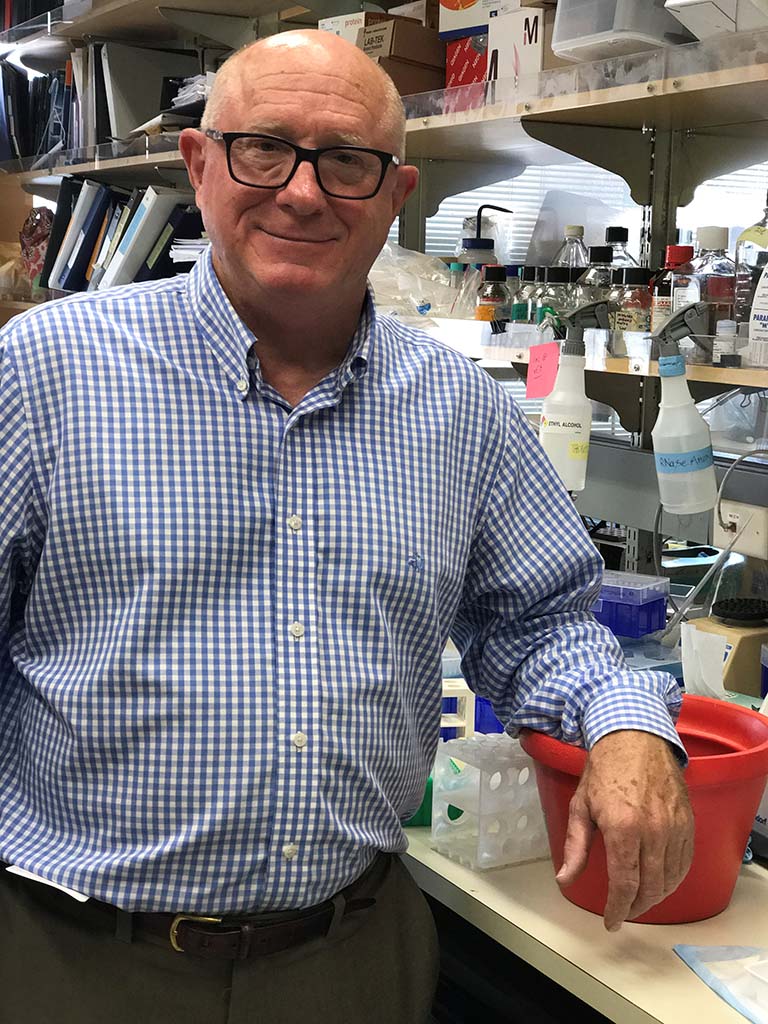For the second year in a row, an Indiana University alumnus has been named recipient of a Lasker award for basic and clinical medical research and public service. This year’s recipient is IU alumnus H. Michael Shepard.
Shepard—an innovator in the field of biotechnology and pioneer in cancer research—earned his Ph.D. in molecular, cellular and developmental biology in 1977 from the IU Bloomington College of Arts and Sciences' Department of Biology, where he also completed postdoctoral training as a Damon Runyon-Walter Winchell Research Fellow. He returned to the Bloomington campus in 2018 as an IU visiting scholar to speak to biotechnology students.
The Lasker Awards—established in 1945 by the Mary and Albert Lasker Foundation—are widely regarded as America's top biomedical research prize, with nearly 90 past recipients going on to win a Nobel Prize. The awards program was created to shine a spotlight on fundamental biological discoveries and clinical advances that improve human health as well as to draw attention to the importance of public support of science.
This year's Lasker~DeBakey Clinical Medical Research Award, given for a major advance that improves the lives of many thousands of people, recognizes Shepard's role in the development of the drug Herceptin (trastuzumab). Herceptin is used to treat patients with HER2-positive breast cancer, an especially aggressive form of the disease. Herceptin attacks tumor cells and slows down their duplication. It has also been successful in treating some ovarian and gastric cancer patients.
"As a graduate student, Michael was always on a relentless search for 'meaning,'" said George Malacinski, IU professor emeritus of biology, who served as mentor co-chair with the late Rudy Raff on Shepherd’s doctoral thesis in 1979 and has kept in touch with him over the years. "He is a keen 'vertical thinker'—stepwise, goal-oriented and always been on a search for 'what do the details of this or that discovery actually mean?'—as well as a 'lateral thinker' who enjoys connecting information from one research project to other research data.
"Being very inquisitive with an analytical, active mind, Michael challenged himself and others with 'forward thinking: What comes next?'" Malacinski added. "He was also especially well-liked: gregarious, quick to offer a hearty laugh, and always ready to engage with fellow students and faculty."
While working at Genentech, Inc. from 1980 to 1992 Shepard managed an extramural program that created many successful collaborations with the academic community, including studies that led to Remicade, which is now used to treat multiple autoimmune diseases.


 The College of Arts
The College of Arts